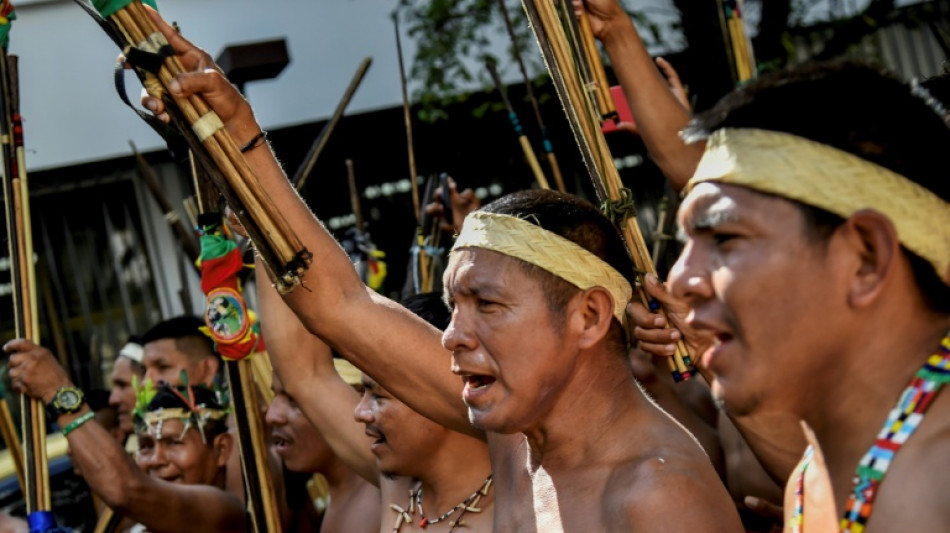

Indigenous protest urges end to Colombia border violence
Hundreds of Indigenous people in Colombia -- holding spears, blowguns and banners saying "Don't kill us" -- protested against bloody clashes between guerrilla factions on the Venezuelan border that have displaced their communities.
The protesters, dressed in traditional clothing and jewelry of the Motilon-Bari people, on Tuesday took to the streets of Cucuta, the regional capital and main border crossing to Venezuela.
"The war has hit us hard in the Catatumbo region," said Alexander Dora, a rights defender for the Bari people.
The northeastern region of Catatumbo is among the areas with the highest concentration of illicit coca crops in the country.
More than 73,000 people have been displaced due to the violent clashes that have flared up in the region since January between the far-left National Liberation Army (ELN) and dissidents of the now-defunct FARC guerrilla group, according to the Ombudsman's Office.
Protesters on Tuesday called on Colombian President Gustavo Petro to protect their lands from illegal groups that sow terror and get rich from deforestation, illegal mining and drug trafficking.
The demonstrators, including some who marched naked, chanted slogans such as "Respect the community" and "We demand the president's presence," adding they would not return to their territory until they met with Petro and his cabinet.
"We have been waiting for many years and have not received any positive response," said Motilon-Bari protester Jhan Clok Borarishora, wearing a headband with colorful feathers.
"We want guarantees and also territory," said Juan Titira, legal representative of the Motilon-Bari community, adding that his people were tired of persistent violence.
Colombia's cultivation of coca increased to 253,000 hectares (625,100 acres) in 2023, according to the UN Office on Drugs and Crime, adding that the nation's potential cocaine production has risen for 10 years in a row.
The South American nation is battling to extricate itself from six decades of armed conflict between leftist guerrillas, right-wing paramilitaries, drug cartels and state forces.
Petro's government has yet to fulfill the promise made when he came into power in 2022 to secure peace with the armed groups.
Talks with the ELN have been on ice since the start of the Catatumbo crisis, which has caused the largest forced displacement of the century in the country, according to Ombudsman Iris Ortiz.
Petro has vowed to get tough against the ELN and to work with Venezuela to jointly combat drug traffickers, with 25,000 troops deployed to the border area so far.
W.Dupont--JdB



